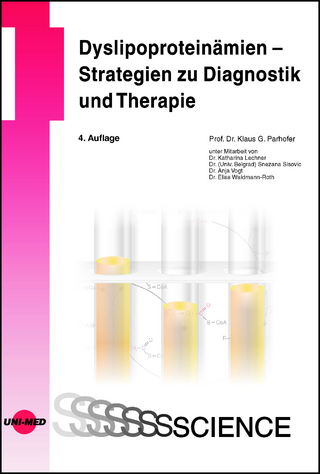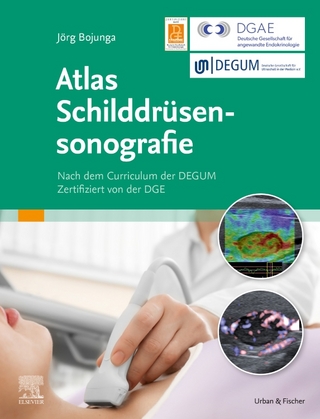
Quantitative Neuroendocrinology
Academic Press Inc (Verlag)
978-0-12-185298-6 (ISBN)
P. Michael Conn is the Senior Vice President for Research and Associate Provost, Texas Tech Health Sciences Center. He is The Robert C. Kimbrough, Professor of Internal Medicine and Cell Biology/Biochemistry. He was previously Director of Research Advocacy and Professor of Physiology and Pharmacology, Cell Biology and Development and Obstetrics and Gynecology at Oregon Health and Science University and Senior Scientist of the Oregon National Primate Research Center (ONPRC). He served for twelve years as Special Assistant to the President and Associate Director of the ONPRC. After receiving a B.S. degree and teaching certification from the University of Michigan (1971), a M.S. from North Carolina State University (1973), and a Ph.D. degree from Baylor College of Medicine (1976), Conn did a fellowship at the NIH, then joined the faculty in the Department of Pharmacology, Duke University Medical Center where he was promoted to Associate Professor in 1982. In 1984, he became Professor and Head of Pharmacology at the University of Iowa College of Medicine, a position he held for eleven years. Conn is known for his research in the area of the cellular and molecular basis of action of gonadotropin releasing hormone action in the pituitary and therapeutic approaches that restore misfolded proteins to function. His work has led to drugs that have benefitted humans and animals. Most recently, he has identified a new class of drugs, pharmacoperones, which act by regulating the intracellular trafficking of receptors, enzymes and ion channels. He has authored or co-authored over 350 publications in this area and written or edited over 200 books, including texts in neurosciences, molecular biology and endocrinology. Conn has served as the editor of many professional journals and book series (Endocrinology, Journal of Clinical Endocrinology and Metabolism, Endocrine, Methods, Progress in Molecular Biology and Translational Science and Contemporary Endocrinology). Conn served on the National Board of Medical Examiners, including two years as chairman of the reproduction and endocrinology committee. The work of his laboratory has been recognized with a MERIT award from the NIH, the J.J. Abel Award of the American Society for Pharmacology and Experimental Therapeutics, the Weitzman, Oppenheimer and Ingbar Awards of the Endocrine Society, the National Science Medal of Mexico (the Miguel Aleman Prize) and the Stevenson Award of Canada. He is the recipient of the Oregon State Award for Discovery, the Media Award of the American College of Neuropsychopharmacology and was named a distinguished Alumnus of Baylor College of Medicine in 2012. Conn is a previous member of Council for the American Society for Cell Biology and the Endocrine Society and is a prior President of the Endocrine Society, during which time he founded the Hormone Foundation and worked with political leadership to heighten the public’s awareness of diabetes. Conn’s students and fellows have gone on to become leaders in industry and academia. He is an elected member of the Mexican Institute of Medicine and a fellow of the American Association for the Advancement of Science. He is the co-author of The Animal Research War (2008) and many articles for the public and academic community on the value of animal research and the dangers posed by animal extremism. His op/eds have appeared in The Washington Post, The LA Times, The Wall Street Journal, the Des Moines Register, and elsewhere. Conn consults with organizations that are influenced by animal extremism and with universities and companies facing challenges from these groups.
Evolution of Deconvolution Analysis as a Hormone Pulse Detection Method, M.L. Johnson and J.D. Veldhuis.
Specific Methodological Approaches to Selected Contemporary Issues in Deconvolution Analysis of Pulsatile Neuroendocrine Data, J.D. Veldhuis and M.L. Johnson.
Physiological within subject Variability and Test-Retest Reliability of Deconvolution Analysis of Luteinizing Hormone Release, T. Mulligan, M.L. Johnson, and J.D. Veldhuis.
Methods for Validating Deconvolution Analysis of Pulsatile Hormone Release: Luteinizing Hormone as a Paradigm, T. Mulligan, M.L. Johnson, and J.D. Veldhuis.
Complicating Effects of Highly Correlated Model Variables on Nonlinear Least-Squares Estimates of Unique Parameter Values and Their Statistical Confidence Intervals: Estimating Basal Secretion and Neurohormone Half-Life by Deconvolution Analysis, J.D. Veldhuis, W.S. Evans, and M.L. Johnson.
Techniques for Assessing Ultradian Rhythms in Hormonal Secretion, J. Sturis and E. Van Cauter.
Frequency Domain Analysis of High-Frequency Ultradian Plasma Adrenocorticotripic Hormone and Glucocorticoid Fluctuations, M. Carnes and B. Goodman.
Monitoring Dynamic Responses of Perifused Neuroendocrine Tissues to Stimuli in Real Time, A.R. Midgley, R.M. Brand, P.A. Favreau, B.G. Boving, M.N. Ghazzi, V. Padmanabhan, E.Y. Young, and H.C. Cantor.
Realistic Emulation of Highly Irregular Temporal Patterns of Hormone Release: A Computer-Based Pulse Simulator, M. Staume, M.L. Johnson, and J.D. Veldhuis.
Simulation of Peptide Prohormone Processing and Peptidergic Granule Transport and Release in Neurosecretory Cells, D.K. Hartline, R.W. Newcomb, and R.W. Newcomb.
Systems-Level Analysis of Physiological Regulatory Interactions Controlling Complex Secretory Dynamics of the Growth Hormone Axis: A Dynamical Network Model, L. Chen, J.D. Veldhuis, M.L. Johnson, and M. Straume.
Implementation of a Stochastic Model of Hormonal Secretion, D. Keenan.
Modeling the Impact of Neuroendocrine Secretogogue Pulse Trains on Hormone Secretion, J.E.A. McIntosh and R.P. Murray-McIntosh.
Quantifying Complexity and Regularity of Neurobiological Systems, S.M. Pincus.
Methods for the Evaluation of Saltatory Growth in Infants, M.L. Johnson and M. Lampl.
Analysis of Calcium Fertilization Transients in Mouse Oocytes, W.O. Friesen, T.R. Creek, O.M. Mcguinnes, R.B. Moreon, and M.J. Berridge.
Index.
| Erscheint lt. Verlag | 16.10.1995 |
|---|---|
| Reihe/Serie | Methods in Neurosciences |
| Mitarbeit |
Chef-Herausgeber: P. Michael Conn |
| Verlagsort | San Diego |
| Sprache | englisch |
| Maße | 191 x 235 mm |
| Gewicht | 1000 g |
| Themenwelt | Medizinische Fachgebiete ► Innere Medizin ► Endokrinologie |
| Medizin / Pharmazie ► Medizinische Fachgebiete ► Neurologie | |
| Naturwissenschaften ► Biologie ► Humanbiologie | |
| Naturwissenschaften ► Biologie ► Zoologie | |
| ISBN-10 | 0-12-185298-9 / 0121852989 |
| ISBN-13 | 978-0-12-185298-6 / 9780121852986 |
| Zustand | Neuware |
| Haben Sie eine Frage zum Produkt? |
aus dem Bereich


